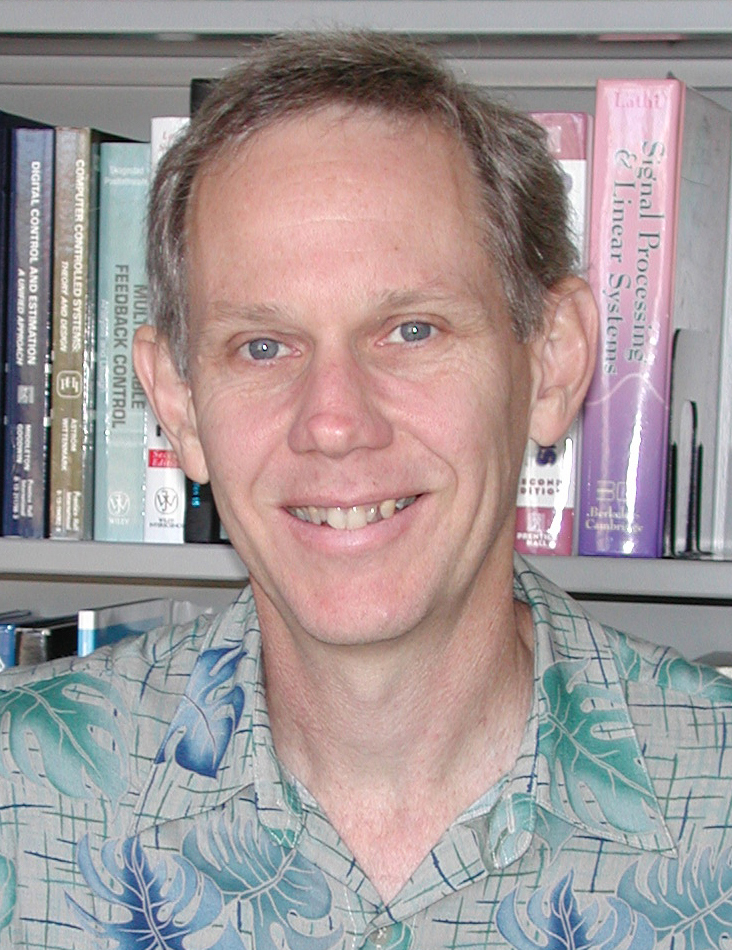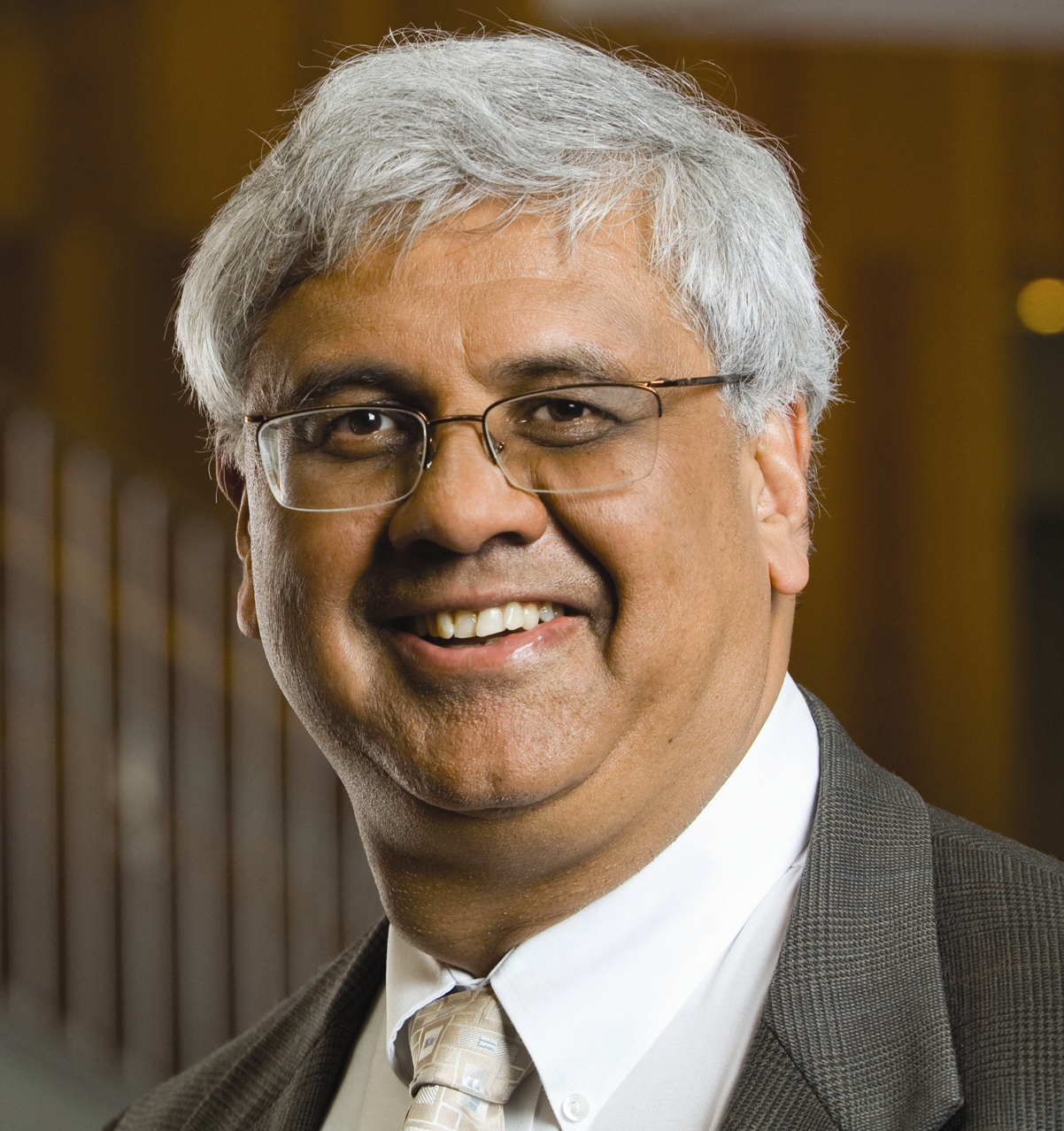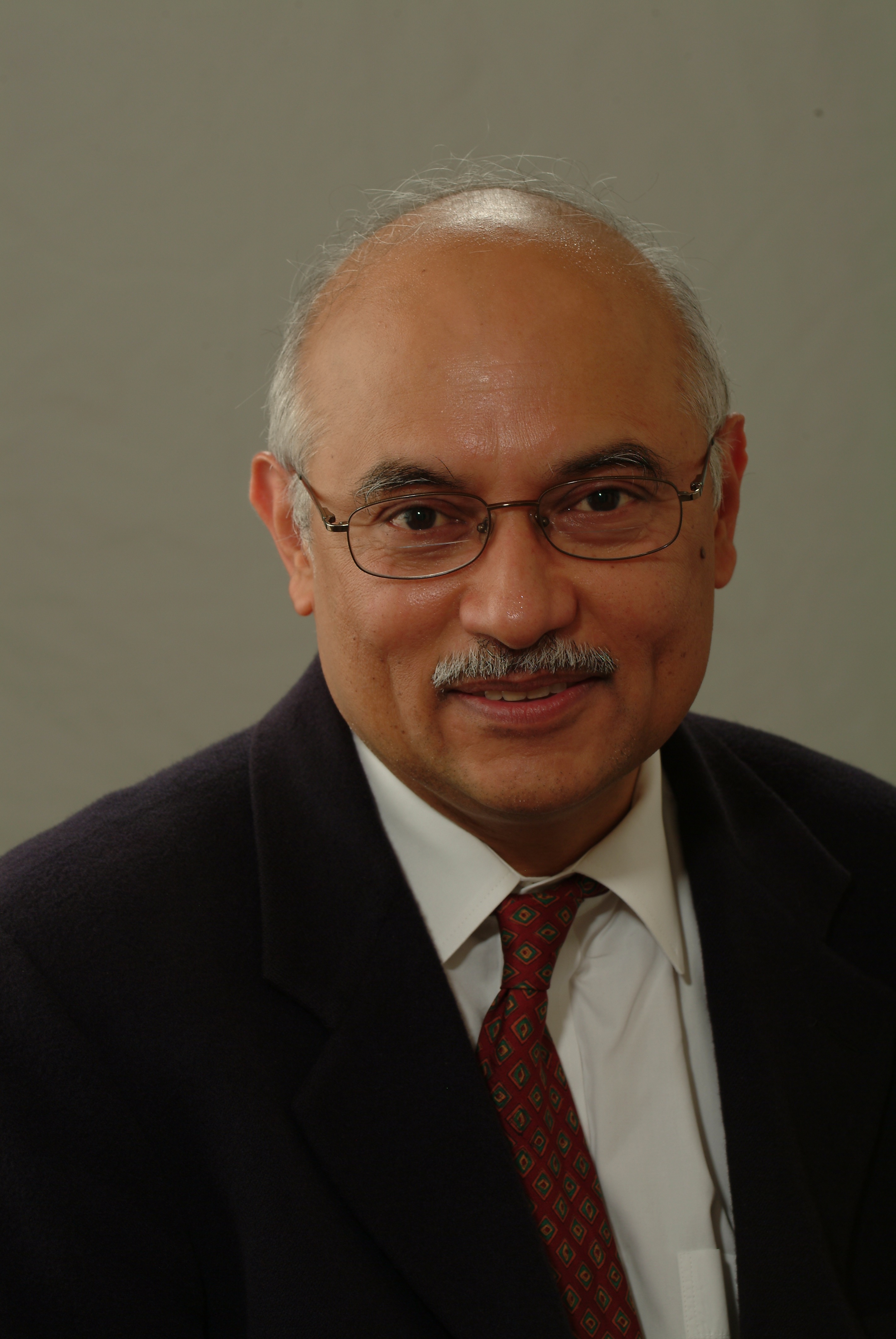CPSWeek plenary speakers
 |
April 15, Tuesday Ian A. Hiskens Title: A Cyber-Enabled Grid of the Future Abstract: Economic and resilient operation of future electricity grids will be reliant on extensive cyber infrastructure that enables active control of highly distributed resources. During normal operating conditions, non-disruptive load control will adjust demand to track renewable generation, while optimally utilizing the physical infrastructure. Following large disturbances, corrective control strategies will guide system reconfiguration and recovery by adjusting resources that include generation, energy storage, load and FACTS (flexible AC transmission system) devices. The presentation will explore this vision for future power systems, and in so doing will highlight the importance of understanding cyber-physical interactions. A discussion of load control will consider mechanisms for achieving economic efficiency and models for capturing aggregate dynamic behaviour. Wind-turbine modelling will be used to illustrate rich forms of hybrid dynamics arising from switching logic. The presentation will conclude with an overview of control strategies that exploit the thermal inertia of transmission lines and transformers in order to minimize equipment failure and prevent cascading outages. Biography: Ian Hiskens is the Vennema Professor of Engineering in the Department of Electrical Engineering and Computer Science at the University of Michigan, Ann Arbor. He has held prior appointments in the Queensland electricity supply industry, and various universities in Australia and the United States. His research interests lie at the intersection of power system analysis and systems theory, with recent activity focused largely on integration of renewable generation and controllable load. Dr. Hiskens is actively involved in various IEEE societies, and is VP-Finance of the IEEE Systems Council. He is a Fellow of the IEEE, a Fellow of Engineers Australia and a Chartered Professional Engineer in Australia. |
 |
April 16, Wednesday S. Shankar Sastry Title: Towards a Theory of Resilient Cyber Physical Systems Abstract: There has been a great deal of work in recent years on the evolution of “Action Webs”. By this we mean closing the loop around networked wireless sensor networks. This networked control system (NCS) is fast becoming the next generation CPS infrastructure for a number of societal scale physical infrastructures such as power, water, building systems, etc. As a consequence, the use of Action Webs in these Cyber Physical Systems will need the resilience attributes of robustness, fault tolerance and resistance to cyber attacks. We believe that the development of a theory of resilient CPS systems needs to stand on the twin legs of Resilient NCS (RC) and Economic Incentivization for investing in high confidence systems design and operation (EI). . In this talk we will provide the rudiments of an RC theory for modeling confidentiality, integrity and availability attackers on action webs, tools for defending them in depth, or if attacks are successful to enable them to operate through attacks. Next, for EI, we will discuss how we can provide economic incentives to the private entities which own individual action webs to address the issues of “under investment in the common good”. More technically, this is a mechanism design procedure for helping bridge the gap between the non-cooperative Nash equilibrium of multiple players and the societal optimum strategy. Mechanism design for cyber physical systems includes data analytics with “big data” with hard real time constraints for decision making. We illustrate the application of our theory on water, power and chemical process control. The work is primarily based on joint work with Saurabh Amin (now at MIT), Alvaro Cardenas (now at UT Dallas), my colleague Claire Tomlin, and my research group especially, Galina Schwartz, Lillian Ratliffe, Dan Calderone, Roy Dong, and Henrik Ohlsson. Biography: S. Shankar Sastry is the Dean of Engineering at University of California, Berkeley and Director of the Blum Center for Developing Economies at UC Berkeley. He is also the Roy W. Carlson Professor of Engineering, a Professor of Electrical Engineering & Computer Sciences, Bioengineering and Mechanical Engineering. From 2004 to 2007 he was the Director of CITRIS (Center for Information Technology in the Interests of Society) an interdisciplinary center spanning UC Berkeley, Davis, Merced and Santa Cruz. In February 2007, he was appointed the faculty director of the Blum Center for Developing Economies. He has served as Chairman, Department of Electrical Engineering and Computer Sciences, University of California, Berkeley from January 2001 through June 2004. From 1999-early 2001, he served as Director of the Information Technology Office at DARPA. From 1996-1999, he was the Director of the Electronics Research Laboratory at Berkeley. Dr. Sastry received his Ph.D. degree in 1981 from the University of California, Berkeley. His areas of personal research are embedded and autonomous software for unmanned systems (especially aerial vehicles), computer vision, computation in novel substrates such as quantum computing, nonlinear and adaptive control, robotic telesurgery, control of hybrid and embedded systems, network embedded systems and software. Most recently he has been concerned with cybersecurity and critical infrastructure protection, and has helped establish an NSF Science and Technology Center, TRUST (Team for Research in Ubiquitous Secure Technologies). He has coauthored over 400 technical papers and 9 books. He has supervised over 50 doctoral students to completion and over 50 MS students. |
 |
April 17, Thursday P. R. Kumar Title: The challenges for mechanisms and applications of cyber-physical Systems Abstract: Cyber-physical systems represent a third generation platform enabling large scale control systems, after the earlier two generations of analog control and digital control. This new platform poses multiple challenges at many levels to building reliable systems, both at the level of enabling mechanisms as well as in application design and analysis. We will address several problems related to providing guarantees on timeliness of communications, proofs of safety, and design of distributed systems. Biography: P. R. Kumar is at Texas A&M University, where he holds the College of Engineering Chair in Computer Engineering. His current research is focused on energy systems, wireless networks, secure networking, automated transportation, and cyberphysical systems. Kumar is a member of the National Academy of Engineering of the USA, and a fellow of the World Academy of Sciences. He was awarded an honorary doctorate by the ETH, Zurich. He received the Outstanding Contribution Award of ACM SIGMOBILE, the IEEE Field Award for Control Systems, the Donald P. Eckman Award of the American Automatic Control Council, and the Fred W. Ellersick Prize of the IEEE Communications Society. He is an ACM Fellow and a Fellow of IEEE. He is an Honorary Professor at IIT Hyderabad, and a D. J. Gandhi Distinguished Visiting Professor at IIT Bombay. |
Program
The following is a list of the program at the CPS Week 2014 in Berlin. The CPSWeek 2014 reserves the right to change the schedule. You will be directed to the conference specific program if you click on the links below.
Download the complete program booklet
| Sunday, April 13 (Microsoft / IPSN Location Competition, Preparation Day) | ||||||||||||
|---|---|---|---|---|---|---|---|---|---|---|---|---|
| 09:00 | Registration opens | |||||||||||
| 09:00-17:00 | Microsoft / IPSN Location Competition Preparation Room: Saphir 2 and 3, Foyer EG | |||||||||||
| 17:00 | Registration closes | |||||||||||
| Monday, April 14 (Workshop and Tuturial Day) | ||||||||||||
| 08:00 | Registration opens | |||||||||||
| 08:00-09:00 | Welcome Coffee, Foyer EG | |||||||||||
| 09:00-17:00 | Microsoft / IPSN Location Competition Room: Saphir 2 and 3, Foyer EG | |||||||||||
| 09:00-11:00 |
| |||||||||||
| 11:00-11:30 | Coffee break, Foyer EG | |||||||||||
| 11:30-13:00 |
| |||||||||||
| 13:00-14:00 | Lunch, Restaurant Delight | |||||||||||
| 14:00-16:00 |
| |||||||||||
| 16:00-16:30 | Coffee break, Foyer EG | |||||||||||
| 16:30-18:00 |
| |||||||||||
| 18:00 | Registration closes | |||||||||||
| Tuesday, April 15 | ||||||||||||
| 07:30 | Registration opens | |||||||||||
| 07:30-08:30 | Welcome Coffee, Foyer EG | |||||||||||
| 08:30-10:00 | Plenary - Session Chair: John Lygeros, Room: Rubin | |||||||||||
| 08:30 | Welcome | |||||||||||
| 08:30-10:00 | Keynote: A Cyber-Enabled Grid of the Future (Ian A. Hiskens) | |||||||||||
| 09:50 | Best Paper Award HSCC | |||||||||||
| 10:00-10:30 | Coffee break | |||||||||||
| 10:30-12:30 |
| |||||||||||
| 12:30-13:30 | N2Woman Event | |||||||||||
| 12:30-13:30 | Lunch | |||||||||||
| 13:30-15:00 |
| |||||||||||
| 15:00-15:30 | Coffee break | |||||||||||
| 15:30-17:00 |
| |||||||||||
| 17:00-18:00 | Industrial Presentations | |||||||||||
| 17:00-20:00 | Poster and Demo Session and Reception | |||||||||||
| 20:00 | Registration closes | |||||||||||
| Wednesday, April 16 | ||||||||||||
| 08:00 | Registration opens | |||||||||||
| 08:30-10:00 | Plenary - Session Chair: Werner Damm, Room: Rubin | |||||||||||
| 08:30-10:00 | Keynote: Towards a Theory of Resilient Cyber Physical Systems (S. Shankar Sastry) | |||||||||||
| 09:50 | Best Paper Award IPSN | |||||||||||
| 10:00-10:30 | Coffee break | |||||||||||
| 10:30-12:30 |
| |||||||||||
| 12:30-13:30 | Lunch | |||||||||||
| 13:30-15:30 |
| |||||||||||
| 15:30-16:00 | Coffee break | |||||||||||
| 16:00-17:30 |
| |||||||||||
| 17:30 | Registration closes | |||||||||||
| 18:00 |
| |||||||||||
| Thursday, April 17 | ||||||||||||
| 08:00 | Registration opens | |||||||||||
| 08:30-10:00 | Plenary - Session Chair: Raj Rajkumar, Room: Rubin | |||||||||||
| 08:30-10:00 | Keynote: The challenges for mechanisms and applications of cyber-physical Systems (P. R. Kumar) | |||||||||||
| 09:40 | Best Paper Award ICCPS | |||||||||||
| 09:50 | Best Paper Award RTAS | |||||||||||
| 10:00-10:30 | Coffee break | |||||||||||
| 10:30-12:30 |
| |||||||||||
| 12:30-13:30 | Lunch | |||||||||||
| 13:30-15:30 |
| |||||||||||
| 15:30-16:00 | Coffee break | |||||||||||
| 16:00-18:00 |
| |||||||||||
| 18:00 | Registration closes | |||||||||||
